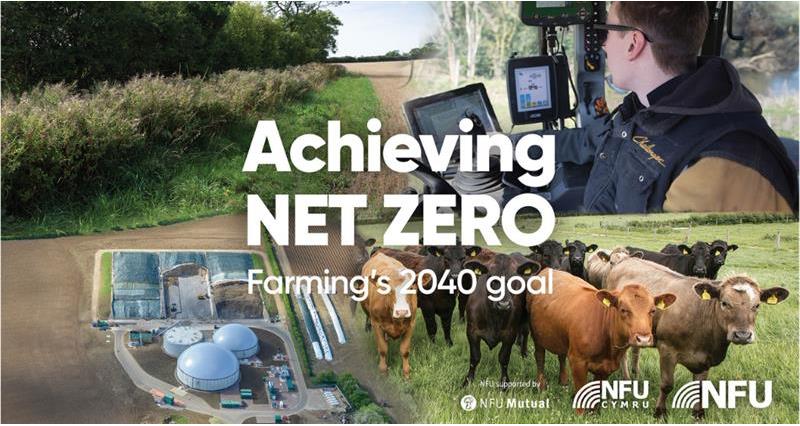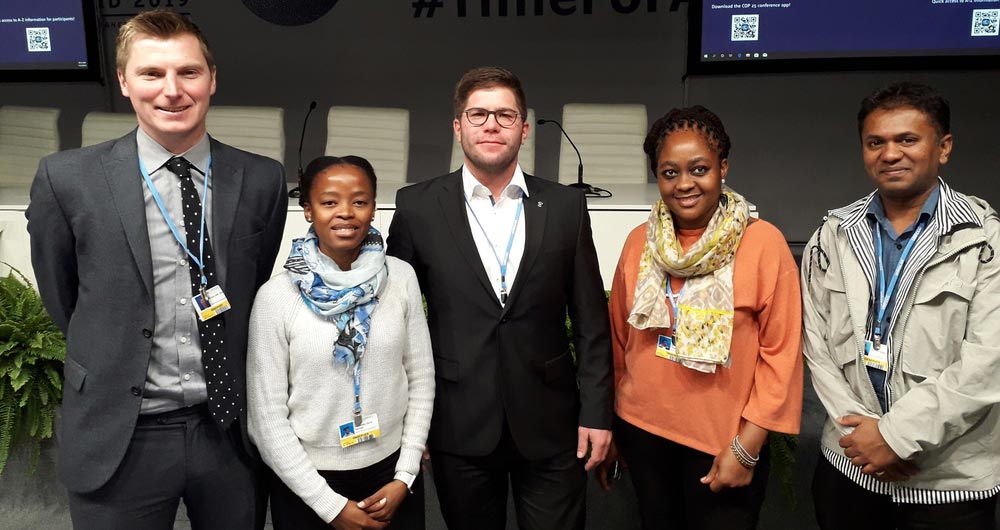Today (4 December) is designated Farmers Day at COP25 and will see farming groups, researchers, civil society, and other advocates sharing perspectives on agriculture and climate change. Here, three members of the World Farming Organisation Gymnasium – a programme that aims to help young farmers become future farming leaders – give a global perspective on farming and climate change.
Farming has a strong international presence at COP25 with the Farmers Constituency made up of farmers and farming representatives from across the globe, all making sure agriculture’s voice is heard in the climate change debate and all keen to make clear that agriculture is seen as part of the solution to climate change, not the problem.
While many of the challenges of climate change are similar the world over, each country has its own individual issues as well. With today designated Farmers Day at COP25, three members of the WFO’s Gymnasium programme shared some thoughts on the impact of climate change in their countries.
Achieving net zero - meeting the climate change challenge

In September the NFU outlined the policy, mechanisms and support required from government and other stakeholders in order for agriculture to meet the NFU's aspiration of net zero by 2040. Read the report - Achieving Net Zero: Farming’s 2040 Goal
More from COP25:
- NFU Staffordshire county chairman Richard Bower is at COP25 making sure the positive role that British farming plays in finding solutions to climate change is recognised. See what he had to say in this insight article.
- NFU climate change adviser Dr Ceris Jones sets the scene for COP25 from a farming perspective. Read her article here.
Nono Sekhoto, South Africa
Climate change is a big issue in South Africa. In the last two months we’ve had tornadoes for the first time on the east coast, we’ve had floods in the same region, and we’re currently facing drought in central South Africa. It’s been really extreme. A lot of farmers, especially smallholder farmers, are not really equipped with the information we need. I’m a cattle farmer with 2,000 hectares of land for grazing and right now it’s tough. Feed costs are really expensive because of the shortage of grass. Information around farmers being part of the solution to climate change is pretty scarce. A lot of smallholder farmers are just focusing on trying to operate and be part of the value chain. A lot of NGOs have approached farmers to see how they can help but a lot of this help is coming from NGOs not the government.
Mahess Roopun, Mauritius
Mauritius is a small island and we’re facing a lot of trouble from climate change, which is affecting all our production. As part of the solution, we’re now getting help from the Chinese. Scientists are coming over to look at how we can adopt new methods. These contributions started recently and we’re having a second session soon. One of the big issues with climate change is that young people are being discouraged now in farming. Young people don’t want to come into agriculture because of the problems. There are many young farmers who are studying agriculture at university but don’t want to farm when they leave. We‘re working with our university in Mauritius to bring in changes and new technology from outside to encourage farmers to continue in the industry and to encourage young farmers to come into the industry as well.
Christoph Daun, Germany
I think climate change is a big issue for farmers in Germany, with issues like soil protection and droughts, and I think it will become a bigger issue in the coming years. Now we have some farmer protests in Germany. The problem is that farmers have the feeling that politicians and people living in cities have no idea about the reality of everyday life on farm. It’s important to show what farming involves so that people can understand what problems we have to solve in farming and to show that farming can’t change day-to-day, it has to act in the long term. The politicians have to adopt that to their politics.
British farmers aspire to be produce the most climate-friendly food in the world and are proud to work towards an ambition of #netzero by 2040. It’s more important than ever to #BackBritishFarming. Sign up to our newsletter today https://t.co/q85ajmnTDP pic.twitter.com/bIEoNEJrMF
— National Farmers' Union (@NFUtweets) December 4, 2019
More from NFUonline:
